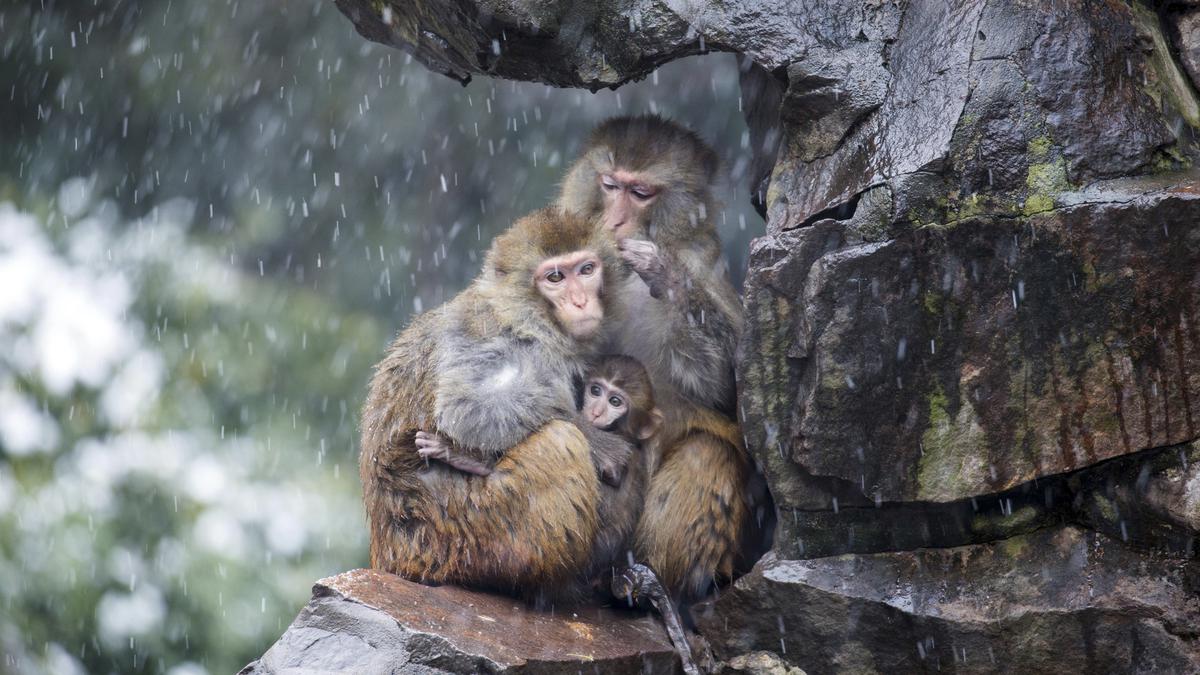
Social behaviour evolved from adapting to extreme cold, study in primates finds
The Hindu
Examining langurs and odd-nosed monkeys provided scientists with evidence that social behaviours, evolved by adapting to live in extremely cold climate
Examining langurs and odd-nosed monkeys provided scientists with evidence that social behaviours, such as extended care by mothers, evolved by adapting to live in extremely cold climatic conditions in the long-run.
Other social behaviours that they studied included increased infant survival and being able to live in large complex multilevel societies.
The study was led by researchers from Northwest University in China and a team including the University of Bristol (UK) and the University of Western Australia, Australia. It is published in the journal Science.
These species, part of the Asian colobine family and found from tropical rainforests to snow-covered mountains, were chosen for the study as they exhibit four distinct types of social organisation and provide a good model for examining the multiple mechanisms that have driven their social evolution.
Also Read | Early life experiences could have a lasting impact on genes: Study
The team integrated ecological, geological, fossil, behavioural and genomic analyses and found that colobine primates inhabiting colder environments tended to live in larger, more complex groups.
More specifically, they said, glacial periods of the last six million years promoted the selection of genes involved in cold-related energy metabolism and neuro-hormonal regulation.





















 Run 3 Space | Play Space Running Game
Run 3 Space | Play Space Running Game Traffic Jam 3D | Online Racing Game
Traffic Jam 3D | Online Racing Game Duck Hunt | Play Old Classic Game
Duck Hunt | Play Old Classic Game











